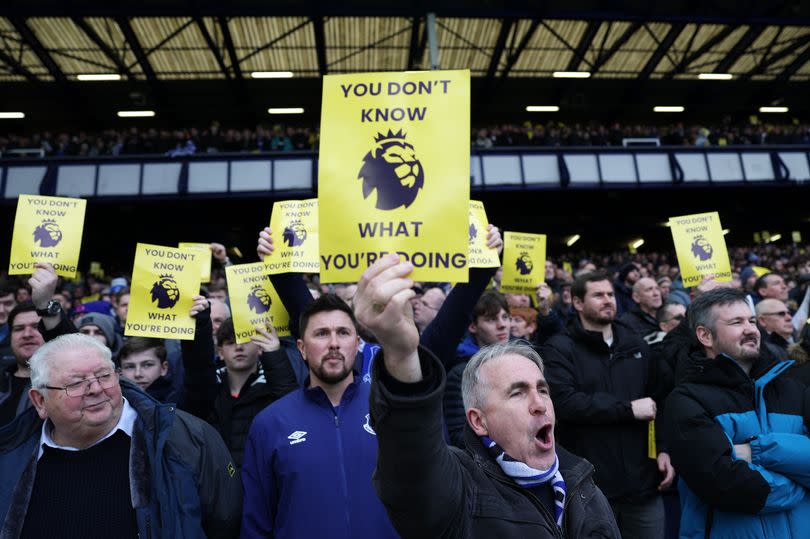Two Everton transfers expose farcical Premier League spending rules

Everton have lost two battles over the Premier League’s controversial spending rules, but the club is building up a strong case should it end up in a third fight.
Whether it does or not remains to be seen - while the picture looks concerning from the outside, there is still hope the club might be able to find a way to comply with Profit and Sustainability Regulations for the first time in three years.
Should Aston Villa complete the signing of Lewis Dobbin, then the Blues’ position will certainly be much improved, while any further business between now and the end of the month would be an additional boost.
READ MORE: Everton takeover: key questions answered with crucial days ahead for Dan Friedkin group
READ MORE: Everton get early transfer boosts as new PSR hope emerges
Unless there is a particularly troubling surprise in the accounts, if it ends up being a narrow breach of the three year, £105m loss limit then Everton will have some substantial mitigation. I have repeatedly written of the vicious cycle the current financial rules are in danger of trapping teams in, making sustainability - surely the goal of the regulations - harder to reach for the clubs in trouble. Everton are a case in point.
The unprecedented points deductions of last season plunged a troubled club deeper into a crisis the players worked miracles to overcome. But the result of a survival-against-the-odds was still undermined by the rules. Everton would have finished three places higher without the deductions, bringing in roughly an additional £9m in merit payments - money that would be of valuable assistance to the club’s PSR position. Two more points - and given the atrocious run Everton went on as the off-field issues gathered momentum it is easy to believe they would have picked up those points without that pressure - and the club would have secured 10th place. Had they done so, they would be around £15m better off.
So if the margins are tight and the Premier League seeks answers, that is one compelling strand of argument. An independent commission may decide Everton have created their own problems and this is a consequence. There is little doubt Everton are responsible for putting themselves at risk of the prosecutions they have faced, but attention has to turn towards the regulator when the rules take on the impression of persecution without rehabilitation.
An even stronger case Everton can make relates to the uncertainty in which they are operating. There remains the outstanding battle between the club and Premier League over how the club accounted for interest on loans said to have been designated for the new stadium. That was deferred earlier this year because it was deemed too complex to be dealt with mid-season. The result of that dispute will have far reaching implications for Everton and could re-define the PSR calculations by tens of millions. Yet the ECHO understands the matter remains unresolved and there is no prospect of an imminent resolution. Put it another way - Everton are trying to work out where they stand without knowing the formula that they have to adhere to. It is a mess and what should the Blues do - sell players ‘just in case’ they lose a battle they are yet to fight? The lack of clarity severely undermines the club’s ability to work out where it stands. If the club was to lose that battle it is tough to see how it would be fair to punish it for failing to take into account rules it only received clarity over once it was too late. The ECHO asked the Premier League for an explanation on how it could fairly judge the club’s spending this year without that key issue being resolved. The league declined the opportunity to comment.
PSR will become a major issue in the coming days as the deadline to comply approaches. It is already having unfortunate side-effects. The potential deals between Everton and Villa for Tim Iroegbunam and Lewis Dobbin can make sense to both clubs for footballing reasons, but a sweetener is the boost any such deals will provide in terms of PSR. It is a great shame that the spending regulations actively encourage the sale of youth products instead of developing them. Another impact is the ruthless attempts by clubs in a stronger position to exploit the vulnerability of those in danger of breaching the rules. The belief Everton need to sell must have influenced Manchester United’s derisory offer for Jarrad Branthwaite. If the Premier League end up trying to argue that the rejection of that bid represented a proactive decision by the club to avoid compliance with the rules, then it only further undermines the integrity of the system. How does being forced to sell prized assets on the cheap make football clubs more sustainable?

 Yahoo Sport
Yahoo Sport 






































